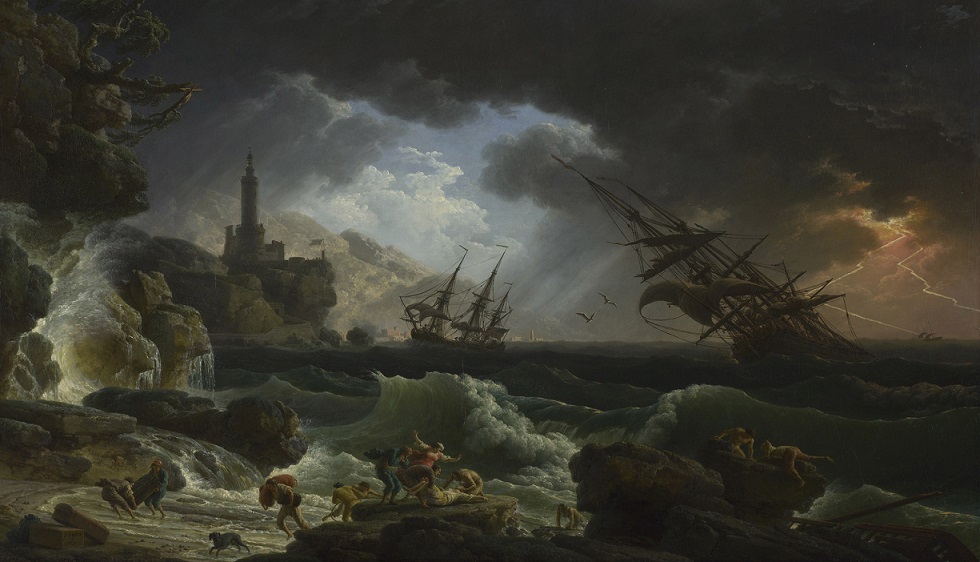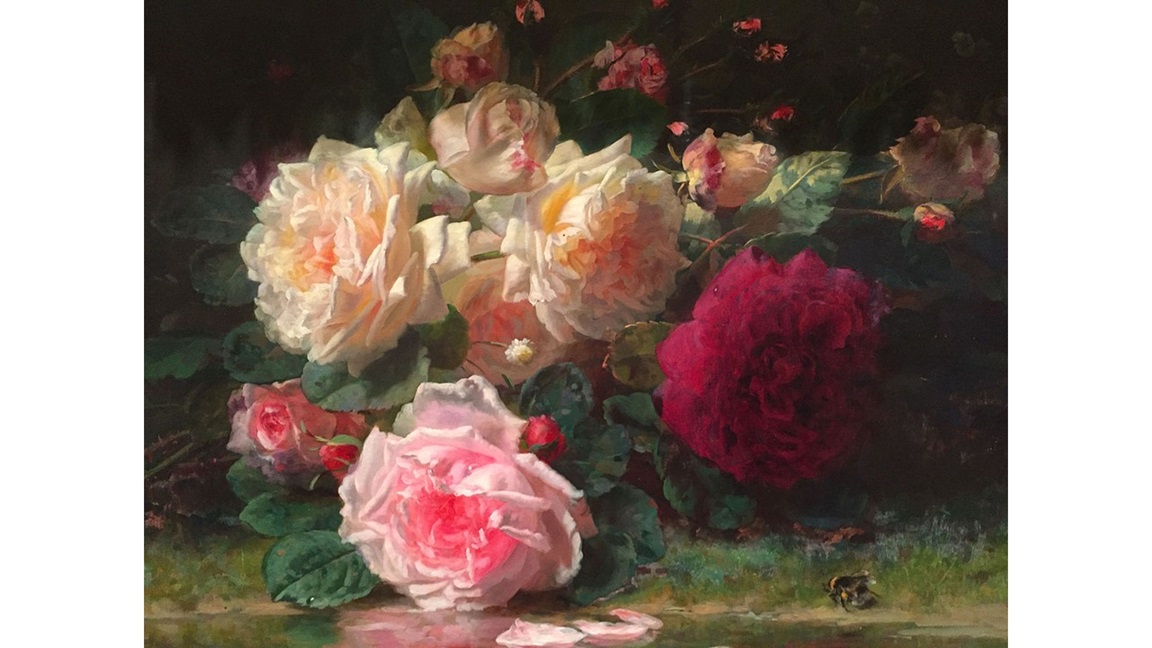.
The Sky
_I’m watching the storm
_From the sea coming in,
Windy and rowdy and gray.
_The raindrops begin
_And the gale makes a spin.
Pelicans swoop o’er the bay.
_A downpour at last
_With some lightning and flash,
Thrashing the coast and the cay.
_As thunderclouds boom
_And the sky threatens doom,
Nature makes good at its play.
_The sky reigns supreme;
_Be it so, it shall deem.
Never we know, how it may.
_We only can bide
_When the sky opens wide
For we are just mortals of clay.
.
.
Margaret Brinton has lived in San Diego’s inland valley area for over forty years where she taught and tutored. Her poems have recently been published in California Quarterly and Westward Quarterly and The Lyric with upcoming work in the greeting card industry.

















Margaret, your expanding perspective here very much suits the subject. You begin with “I,” a single observer feeling raindrops and seeing pelicans, who in the second stanza is overwhelmed as the storm arrives. The third stanza is yet larger than the storm, with the sky reigning supreme over the many “mortals of clay” beneath it. I like, as well, the move from “doom” in the second stanza to its associated verb “deem” in the third. This helps present the sky as a monarch who can “judge” all below. A gradual and artful presentation of the awesome majesty above as seen by a poet attentive to detail!
Ms. Coats,
Your expertise inspires me to keep persevering!
Margaret, I love the rhyme scheme that is carried out through the three verses. Your words paint a picture of the storm coming in from the sea that conjures up the vision in my mind of the Gulf Coast with the pelicans that “swoop over the bay.” Delightful and enjoyable depiction.
Thank you , Roy. I will be heading to the beautiful Gulf Coast next week, but without such serious weather as this poem suggests, I hope. I thank you for reading and evaluating my work!
Vividly descriptive. I liked the idea of humans (i.e. the narrator) taking centre stage at the beginning of the poem, the storm gradually taking over, and Man being insignificant in the face of nature by the end of the piece. This was achieved to a large extent by personifying the impending storm.
I loved the idea of the storm being ‘rowdy’.
Thanks for the read, Margaret.
Your comments are valuable to me. Thank you, Paul!
In the last stanza especially, the author has carried out some syntactic marvels that might change forever one’s understanding of how many different ways the layered structure of language can associate the ideas it is intended to convey. Priceless!
C.B.—–From your comments, I shall further strive!